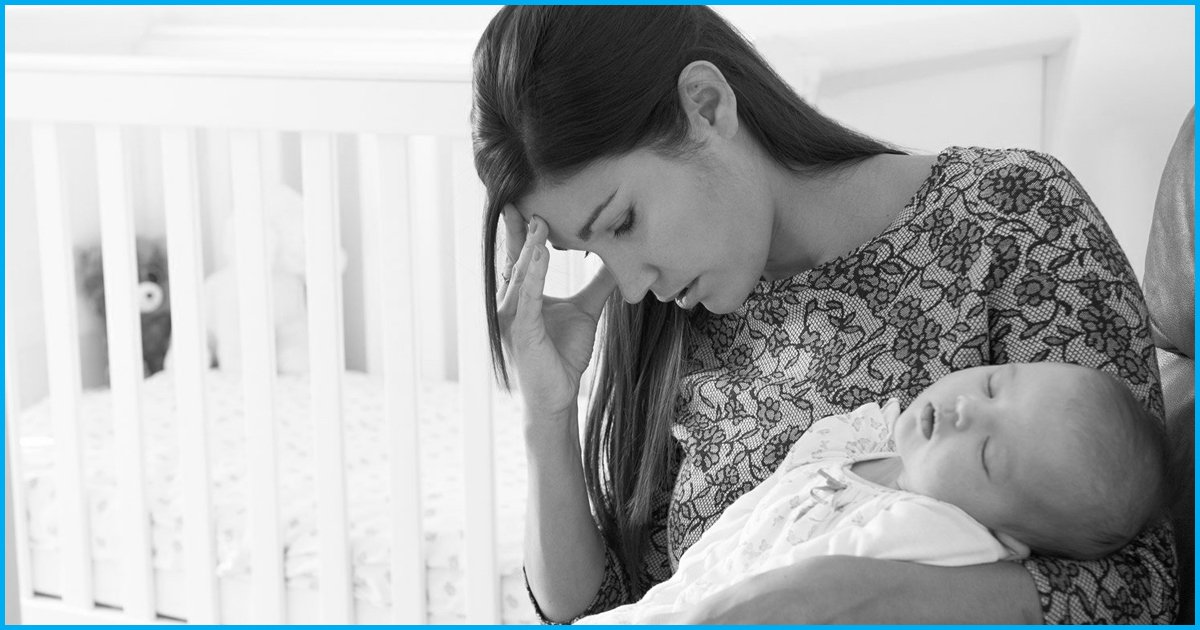
Child Birth Can Cause Depression, And Yes, To Fathers Too
9 April 2018 5:25 AM GMT
For most of us, our knowledge on pregnancy is constrained to the mother’s physical and mental health during those nine months when she carries the baby in her womb. Watching shows and movies has only acted as a catalyst to this perception – women have mood swings, food cravings, their bodies swell up and they have to consume food for two human beings during those months. Not many of us think or are aware about the mother’s, or for a matter of fact the father’s, health post pregnancy. Yes, we are aware that the mother’s body needs time to recover, gain strength and lose weight, but not many of us know about postpartum depression.
What is postpartum depression?
Postpartum depression or PPD as the name suggests is postnatal depression or depression after the birth of a child. It can affect both parents, mostly women.
As a new mom, women face a lot of challenges getting used to the new lifestyle. For the last nine months, she hasn’t gotten a lot of sleep and this problem is bound to increase with new responsibilities after child birth.
Let us talk about this form of clinical depression that not many are aware of but around 20% of moms suffer from it and PPD can last for several months if not treated at the earliest.
What are the symptoms of PPD?
The most common symptoms of PPD – sadness, hopelessness, guilt (because the mother might not want to bond with/ care for the baby due to immense stress) – start during the first year of the child’s birth but can also begin as early as the first three weeks.
Postpartum depression doesn’t only affect first-time moms. Like any other stress/ anxiety, we don’t get used to the depression. It immensely affects us mentally but once gone, we don’t remember how we dealt with it. Depression is not something one can get used to but early detection and subsequent therapy help.
How do mothers get PPD?
When a woman gets pregnant, her hormone levels rise. After the baby is born, they suddenly drop. This sudden change triggers depression.
If a woman has suffered from depression before, she is more prone to getting PPD. It can also occur if depression runs in her family.
Another reason for a new mom to get PPD is if she wasn’t ready for the baby. Accidental pregnancy might not prepare her for new responsibilities. This increases if the family/ husband is not supportive, if she suffers from financial incapacity, etc. Age is also a factor. Very young women, unprepared for a child, might suffer from depression post child birth.
Can fathers get PPD?
Though men are not affected in the same as women are hormonally, they too can get PPD.
Husbands involved in their wife’s pregnancy and in taking care of their child after birth also have sleepless nights, stress and exhaustion. It is a new world for fathers too. PPD is not something many are aware of, especially that it affects men too. Thus, many times, fathers may suffer in isolation. If the mother is also dealing with depression, the father may not have anyone to talk to.
Mental wellbeing is one of the most neglected areas of healthcare and it is time we talked about it and spread awareness about how parents can deal with postnatal depression.
How is PPD treated?
One of the best treatments of PPD is support from friends and family. But this comes with awareness, so talking about depression is extremely important.
There are various levels of PPD – not every form is severe and can pass within a few months. If not, parents should opt for counselling and medication as per doctor’s advice. Psychotherapy is a good way of dealing with depression. It is best to seek help as soon as possible.
Another factor that helps during this time is support from work. Most organisation do not give paternity leave and most who provide maternity leave, do not give aid for post pregnancy mental healthcare. Stress of work when the baby is an infant or very young, adds to the anxiety and depression. Corporates need to come up with policies that help parents during this sensitive time.
Now that a discourse on postpartum depression has begun, it is crucial we continue it and educate people on its severity and how they can help their friends and family cope with it.
 All section
All section













